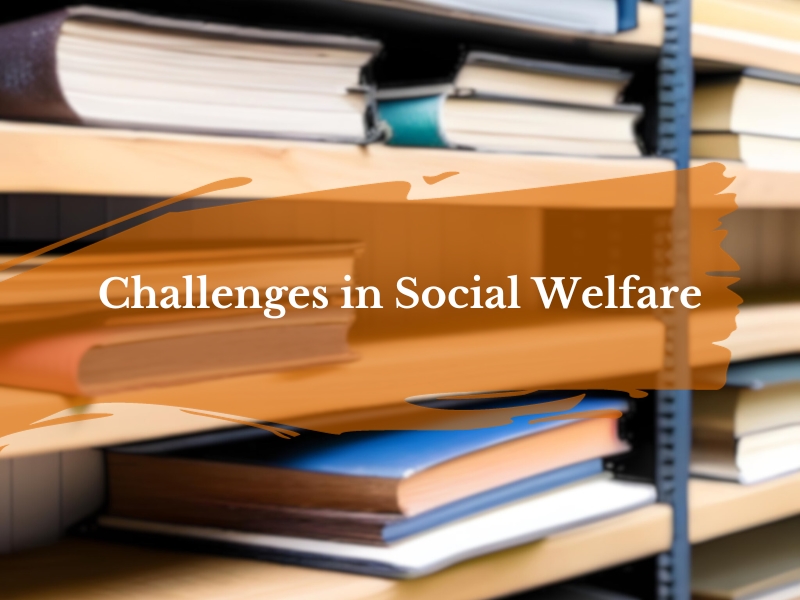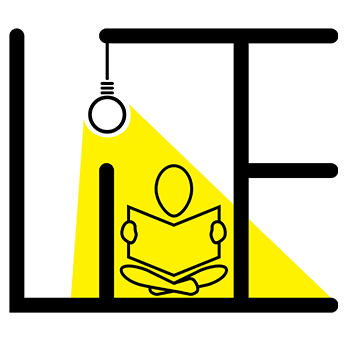Social welfare stands as the bedrock of a compassionate and just society, aimed at lifting up those on the margins and creating a level playing field for all. In the context of a country as diverse and populous as India, this endeavour takes on monumental proportions. The implementation of effective social welfare schemes in India is a complex and formidable challenge, marked by an array of intricate hurdles and multifaceted issues. This article ventures into the heart of these challenges, unravelling the intricacies that define India’s social welfare landscape. It seeks to shed light on not only the obstacles but also the potential pathways and solutions that can help India pave its way toward a more equitable and prosperous future for all its citizens.
Understanding India’s Diversity
India’s diversity, often celebrated for its cultural richness, is a double-edged sword when it comes to social welfare. This vast nation is a tapestry of cultures, languages, and socioeconomic conditions that can vary dramatically from one region to another. While this diversity is undoubtedly one of India’s greatest strengths, it simultaneously presents a considerable challenge in the realm of social welfare. Implementing effective welfare programs requires nuanced approaches that account for the unique needs and contexts of different communities. What works in one state may not be suitable for another. The sheer scale of diversity means that tailor-made solutions are not only beneficial but often necessary. Therefore, addressing the multifaceted needs of India’s diverse population stands as a central challenge in the pursuit of effective social welfare, demanding flexibility, cultural sensitivity, and a deep understanding of the nation’s intricate mosaic.
Population Pressure
India’s burgeoning population, often touted as a demographic dividend, indeed presents a unique challenge in the sphere of social welfare. With over a billion people, the sheer scale of this demographic poses both opportunities and obstacles. While a large workforce can be an economic asset, it also places tremendous pressure on the country’s resources, infrastructure, and public services. Providing adequate social welfare to a population of this magnitude is a monumental logistical and financial task. It demands not only substantial financial resources but also efficient systems for implementation and monitoring. Addressing the diverse needs of such a vast populace, spanning urban and rural areas, requires meticulous planning and resource allocation. Thus, managing the population pressure while ensuring comprehensive social welfare coverage remains a persistent challenge for India’s policymakers and administrators.
Bureaucratic Red Tape
India’s bureaucracy, often hailed as one of the world’s largest administrative systems, plays a pivotal role in the implementation of social welfare programs. However, this formidable machinery is not without its challenges. Bureaucratic red tape, characterized by intricate procedures, paperwork, and administrative hurdles, can often impede the smooth execution of social welfare schemes. These complexities can lead to delays in program implementation and the distribution of benefits to intended beneficiaries. The labyrinthine nature of bureaucratic processes can sometimes be overwhelming for citizens seeking assistance, particularly those from marginalized and vulnerable communities. Therefore, streamlining bureaucratic procedures, reducing unnecessary paperwork, and enhancing the efficiency of the administrative system are vital steps in overcoming this challenge and ensuring that social welfare reaches those who need it in a timely manner.
Funding Constraints
Funding constraints represent a critical challenge in India’s efforts to provide comprehensive social welfare. While the nation recognizes the importance of these programs, resource allocation often falls short of the vast and multifaceted requirements. India’s ambitious social welfare initiatives cover a broad spectrum, including education, healthcare, employment, housing, and more. Each of these sectors demands substantial financial support to effectively address the diverse needs of the population. However, budget limitations can hinder the scale and impact of these schemes. To bridge this gap, innovative financing models, public-private partnerships, and prudent fiscal management are essential. Mobilizing additional resources and optimizing existing ones can help ensure that social welfare programs receive the funding they require to reach their full potential, promoting a more equitable and inclusive society.
Gender Disparities
Gender disparities in India continue to be a significant hurdle in the effective implementation of social welfare schemes. While strides have been made in advancing women’s rights and empowerment, disparities persist, particularly in rural and underserved areas. These inequalities manifest in various forms, including limited access to education, healthcare, economic opportunities, and decision-making power. Consequently, schemes designed to uplift women and promote gender equality face challenges in reaching their intended beneficiaries. To address this issue, tailored interventions, awareness campaigns, and community engagement are crucial. Empowering women not only enhances their well-being but also contributes to the overall development of society. Recognizing and addressing gender disparities is a fundamental step toward creating a more inclusive and equitable social welfare framework in India.
Access to Remote Areas
Accessing remote and geographically challenging areas in India remains a formidable obstacle in the path of effective social welfare implementation. India’s diverse terrain includes remote villages nestled in mountains, dense forests, and far-flung islands, making it difficult to reach some of its most marginalized populations. The lack of proper roads, transportation infrastructure, and connectivity exacerbates this challenge. Ensuring that social welfare schemes extend to these regions demands creative solutions, including mobile outreach units, community-based programs, and leveraging technology for service delivery. Overcoming these geographical barriers is essential to achieving inclusive development and ensuring that the benefits of social welfare reach every corner of the nation, leaving no one behind. It underscores the importance of adaptive approaches and innovative strategies in the pursuit of social equity and well-being for all Indians.
Education Barriers
Education barriers in India present a substantial challenge to the effective implementation of social welfare schemes. Despite significant progress in recent years, certain regions still grapple with low literacy rates and inadequate access to quality education. Many social welfare programs, including those focused on skill development, women’s empowerment, and poverty alleviation, require a basic level of education for beneficiaries to fully participate. In areas where illiteracy prevails, these programs often face difficulties in reaching their intended beneficiaries. Bridging this educational gap is not only essential for improving the overall well-being of individuals but also for ensuring that social welfare initiatives can fulfil their objectives. Therefore, concerted efforts to enhance literacy rates and promote education in underserved regions are vital components of any strategy aimed at overcoming the educational barriers to effective social welfare implementation.
Corruption and Leakage
Corruption and leakage in the distribution of welfare benefits pose significant hurdles to the successful implementation of social welfare programs in India. Despite efforts to create transparent and accountable systems, instances of funds siphoned off or intended beneficiaries being excluded due to corrupt practices persist. These malpractices not only drain resources but also undermine the core objectives of social welfare schemes, which are designed to uplift the underprivileged and reduce inequalities. Tackling corruption and ensuring that welfare benefits reach their intended recipients without leakages are critical steps toward enhancing the effectiveness and impact of these initiatives. It necessitates a multi-pronged approach involving stringent oversight, technological solutions, and public awareness campaigns to promote accountability and integrity in the delivery of social welfare services.
Awareness and Participation
Awareness and participation in social welfare programs pose a significant challenge in India’s diverse landscape. Many eligible beneficiaries, especially in remote and marginalized communities, remain unaware of the various welfare schemes designed to improve their lives. Additionally, cultural and societal barriers can deter individuals from accessing these programs even when they are aware of them. Overcoming these challenges requires a concerted effort to bridge the information gap through community outreach, education campaigns, and leveraging local networks and leaders to promote participation. Moreover, tailoring programs to suit the specific needs and preferences of different regions and communities can foster greater engagement. Ultimately, raising awareness and ensuring active participation is pivotal to realizing the full potential of social welfare initiatives and ensuring that they genuinely benefit those in need.
Changing Societal Dynamics
Changing societal dynamics in India present an intricate challenge for social welfare initiatives. The nation’s demographics are evolving, with a growing urban population and shifting family structures. Urbanization brings its own set of challenges, including increased living costs and social disparities. Additionally, the traditional joint family system is giving way to smaller family units, affecting the dynamics of support systems within communities. To address these shifts effectively, social welfare programs must remain flexible and adaptable. They should consider the unique needs of urban populations, such as affordable housing and employment opportunities, while also recognizing the importance of maintaining a safety net for vulnerable individuals in changing family contexts. Navigating these changes requires a nuanced understanding of evolving societal norms and structures, ensuring that social welfare schemes remain relevant and impactful in a rapidly transforming India.
Conclusion
Challenges in the realm of social welfare in India are undoubtedly complex, reflecting the nation’s vast diversity, population size, and administrative intricacies. However, there are challenges that can be overcome. The path to effective social welfare involves a collaborative effort, where the government, civil society organizations, and the private sector work in unison. It demands innovative solutions that leverage technology, increased transparency in program implementation, and a steadfast commitment to inclusivity, particularly for marginalized communities.
Despite the hurdles, India has made significant progress in improving the lives of its citizens through various social welfare initiatives. Initiatives like MGNREGA, Ayushman Bharat, and PMAY have demonstrated the potential for transformative change. With sustained efforts and a commitment to refining strategies based on evolving societal dynamics, India can undoubtedly move closer to its ultimate goal: ensuring social justice, equity, and well-being for all its citizens. These challenges, while formidable, can serve as catalysts for positive change and progress in building a more equitable and compassionate society.

